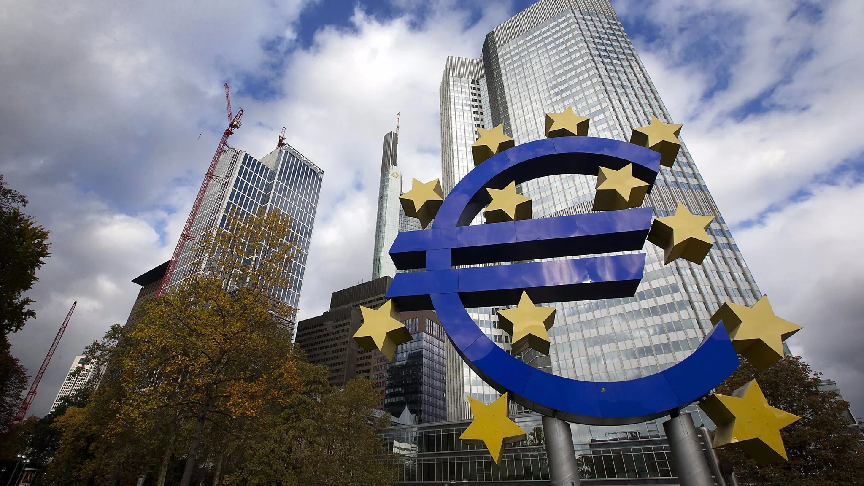The European Central Bank (ECB) is drafting contingency plans to carry out its multi-trillion bond-buying program without the Bundesbank in case Germany’s top court forces the main participant in the scheme to quit, four sources told Reuters.
In this worst-case scenario, the ECB would launch an unprecedented legal action against the German central bank, its biggest shareholder, to bring it back into the program, said the sources, who spoke on condition of anonymity.
The moves would likely mark a moment of truth for the euro, testing Germany’s commitment to a currency it played the biggest role in creating and forcing it to tackle some deep-seated reservations within the country about ECB policies.
Germany’s constitutional court has given the ECB until early August to justify its massive buying of government bonds or continue the scheme without the Bundesbank, which is supposed to carry out more than a quarter of the bond purchases.
Most of the sources expect the legal challenge from the court in Karlsruhe to be resolved by the Bundesbank itself by demonstrating that the policy was appropriate and addressing concerns about its side effects.
But staff at the ECB and the eurozone’s national central banks are preparing for what one source described as the “unbelievable”: a scenario in which the court bans the Bundesbank from taking part in the purchases.
In that case, the ECB, or less likely the other eurozone central banks, would take up the Bundesbank’s quota in the Public Sector Purchase Programme (PSPP) and buy German bonds, the sources said.
They said such plans had not been finalised or officially discussed by the ECB’s Governing Council yet.
Spokesmen for the ECB and the Bundesbank declined to comment.
No risk sharing?
If other central banks buy Bunds, it would break the “no risk sharing” principle the Bundesbank insisted upon when the programme was launched in 2015, under which each national central bank buys its own government’s bonds and the risk is shared over the limited amount of debt bought by the ECB itself.
The ECB has slowed down German bond purchases since the start of the coronavirus pandemic to focus its firepower on Italy, which has come under pressure in the bond market as the outbreak has savaged its already shaky public finances.
Bundesbank purchases of German sovereign debt, or Bunds, totalled just 628 million euros ($688 million) in April, or just 2.3% of the government bonds bought under the PSPP that month.
But even if the Bundesbank quits the scheme, leaving Bunds out is not an option given that they serve as the de facto eurozone benchmark for private investors thanks to their top-notch credit rating and ample availability.
Furthermore, cutting off Germany from the ECB’s flagship stimulus programme would invite speculation about a euro zone break up, which the ECB has been trying to quash since the euro crisis of 2010-12.
In the meantime, the ECB would probably launch an infringement procedure against the German central bank for failing to fulfil its obligation as a member of the Eurosystem if it has to stop buying bonds, the sources said.
If the Bundesbank then failed to comply, the ECB could take the matter to European Court of Justice (ECJ), in what would be the first such case since the euro was created in 1999.
The ECJ has already upheld the PSPP but its ruling was disregarded by Germany’s constitutional court, opening a further conflict German and European Union institutions.
So far, the German government has shown optimism that any such scenario can be avoided. Chancellor Angela Merkel told senior officials from her party earlier this month that the issue was “solvable” if the central bank explained the plan.
Reuters/Balkantimes.press
Napomena o autorskim pravima: Dozvoljeno preuzimanje sadržaja isključivo uz navođenje linka prema stranici našeg portala sa koje je sadržaj preuzet. Stavovi izraženi u ovom tekstu autorovi su i ne odražavaju nužno uredničku politiku The Balkantimes Press.
Copyright Notice: It is allowed to download the content only by providing a link to the page of our portal from which the content was downloaded. The views expressed in this text are those of the authors and do not necessarily reflect the editorial policies of The Balkantimes Press.

